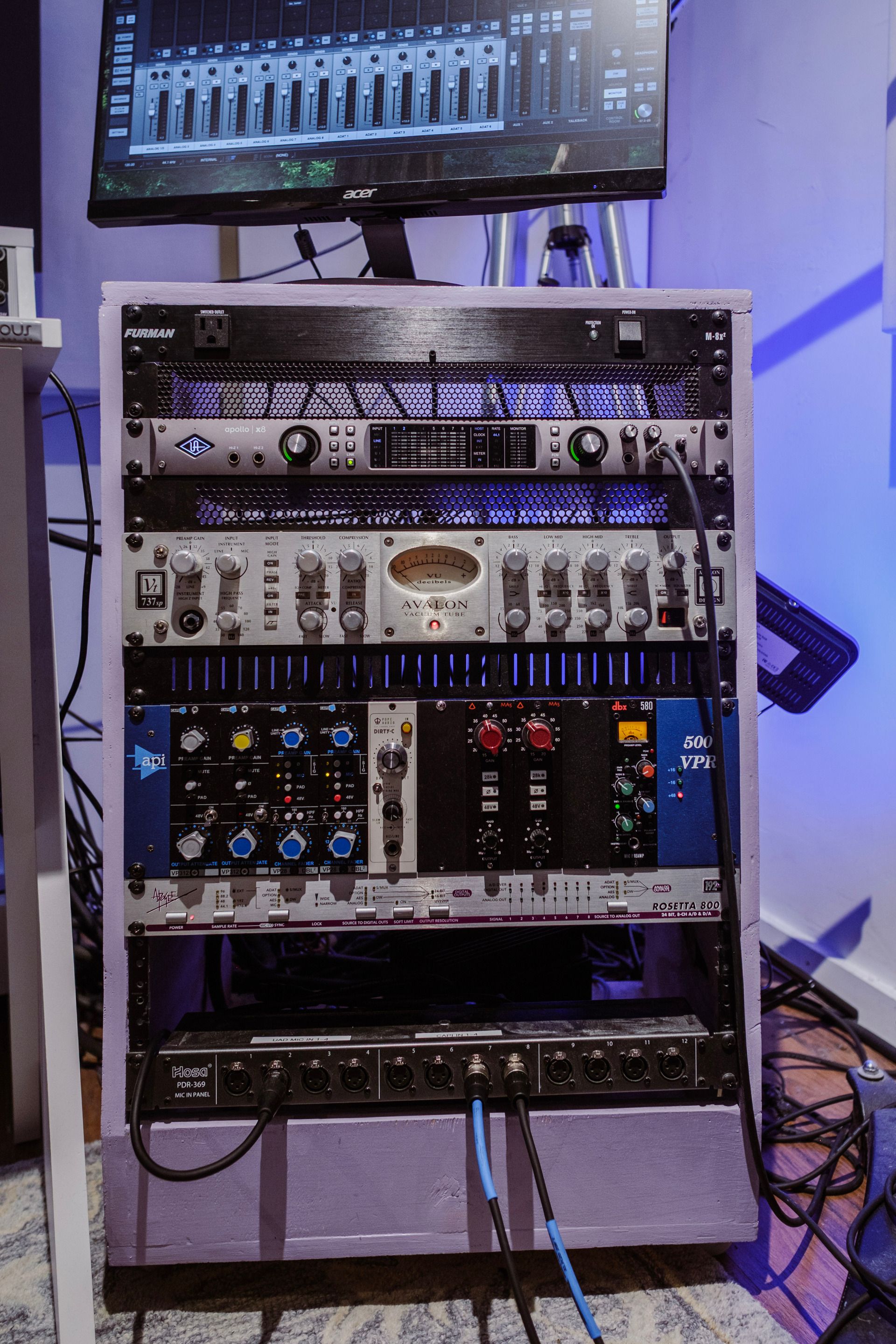Please welcome our new guest author, producer and songwriter Pete Covington. StudioBook is glad to help spread your gospel about making money in the music industry.

Have you ever been told you need to 'find your sound'? I was on a call recently with a UK artist who brought it up. It got me thinking—what does that even mean?
Usually what people mean is: find a sound that’s uniquely yours— something identifiable and recognizable. When the song comes on, people should instantly know it’s you. That sounds great in theory, but it implies your sound must be completely original—something no one’s ever done before. And that’s not true (or even possible).
Nearly every culturally significant work of art combines something unique with something familiar. Take Mk.gee. He’s one of the most “original” artists I’ve heard in years, yet his music clearly nods to The Police—there's even a touch of Sting in his vocal delivery. His music has strong traces of 80s pop, but everything’s tape-warped, murky, and fuzzed out. Most importantly, it’s still melodic and hooky, even when you can’t understand the words. As my friend JM Rouchell points out, these are pop songs disguised as indie. The originality lies in the combination—the rub between familiar and new. But that's not what I was taught growing up.

My dad was the first person to drill this into me: “You must, above all else, be original.” I spent years chasing that. I refused to embrace traditional song structures. I resisted learning music theory (of course doing it 'my own way' was more original). I wound up with more unfinished than finished music. And the songs I did finish felt incomplete—nothing for the listener to grab onto. As soon as they started nodding their head to one section, it would vanish. (Repetition was an enemy of mine back then.)
I’m not saying originality doesn’t matter. But the pursuit of pure originality is usually a bottomless pit of overthinking and unfinished work. So, finding your sound isn’t only about being original. Kurt Cobain once said he was trying to rip off The Pixies when he wrote Smells LikeTeen Spirit. Did he mean the screamed vocals? Or the quiet-loud-quiet-loud dynamic both bands used? Lots of artists say the same thing: they try to copy their heroes, fail, and end up sounding like themselves.
John Frusciante of the Red Hot Chili Peppers admitted to "stealing" from T. Rex (a song literally called Rip-Off) and Joe Jackson when writing Under the Bridge. The connection would've been pretty much impossible to spot until he pointed it out on Rick Rubin's Broken Record podcast.
Most of our influences come through without us even knowing. I think even if I never listened to any music ever again, I'd still be ripping off The Beatles, Jimi Hendrix and The Smashing Pumpkins—unwittingly or otherwise. Then there’s the other end of the spectrum: the obvious copies and facsimiles. We all know them—songs that feel more like theft than tribute. These songs might have a quick moment of fame, but rarely longevity. They’re a sugar-rush built on borrowed familiarity. They don’t define an artist’s sound; they depend on someone else’s.
Picasso (and others) talked about copying vs. stealing. “Stealing” meaning to take something and make it so completely your own that people associate it with you more than the source. Mk.gee isn’t the first guitarist to plug straight into a Tascam 4-track and push it into the red—but he took the ball and ran with it.

Finding your sound can feel like a delicate balance. Be original, but also yourself, but also steal from your heroes. Sometimes the harder you try to define your sound, the more evasive it seems to be. Even the greats struggle with that.
Bob Dylan (undoubtedly a great artist who steals) writes about it in Chronicles Vol. 1. In the late 1980s, even with a steady stream of albums released, Dylan felt creatively stagnant: "My own songs had become strangers to me. I didn't have the skill to touch the right nerves, couldn't penetrate the surfaces. It wasn't my moment of history anymore." It was a new collaboration with The Grateful Dead that reinvigorated him. After a run of shows on the same bill, Dylan began jamming with the band, who had been playing his songs for years. Their versions showed him something new: "They understood these songs better than I did at the time."
The Dylan & the Dead album released a few years later is divisive, but it sparked the creative rebirth that led to Oh Mercy (1989) and the absolute masterpiece Time Out of Mind (1997)—both produced by Daniel Lanois. It’s a good reminder that sometimes finding your sound means getting out of your own way. In Bob Dylan's case, it was his sound that evolved—but it did so in part through collaboration. He stayed open enough to let someone else’s perspective in.
So this is what I realized: There's a part of the process of finding your sound that requires letting go. It's not that you stop looking. Quite the opposite.
You look everywhere. And maybe most importantly, beyond yourself and what you, on your own, can imagine. If you feel like you could use an outside perspective, consider booking studio time with a music producer or engineer. The beauty of finding your sound is that once you do, the recording studio truly becomes a launchpad for your music career.